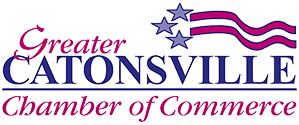The Smart Entrepreneur’s Guide to Securing Small Business Funding
The Smart Entrepreneur’s Guide to Securing Small Business Funding
When you’re ready to seek funding for your small business, what you bring to the table says as much as your pitch. Sure, confidence counts — but documentation, planning, and a smart presentation often matter more. Whether you're after a modest microloan or something more ambitious, lenders aren't just betting on your idea; they’re evaluating how well you've done your homework. This means preparation isn’t optional — it’s your ticket to being taken seriously. Get it wrong, and you’ll find the process frustrating, fast. But with the right groundwork? You’re not just applying — you’re setting yourself up to win.
Polish Up Your Financial Statements
Lenders crave clarity — and nothing screams clarity like clean, well-prepared financial statements. These aren’t just formalities; they’re your business’s pulse, charting its health and trajectory. If your profit and loss statement is a mess or your balance sheet’s full of holes, expect skepticism. You’ll want to provide essential financial statements that reflect consistent tracking and honest reporting. It’s worth working with an accountant here — precision pays. And remember: if a lender has to ask for clarification more than once, you’ve already lost points.
Protect Personal Information
When submitting financial documents, it’s easy to forget how much personal data you're handing over. Social security numbers, account info, family addresses — it’s all in there. But here’s the catch: most lenders don’t need that level of detail. That’s why it’s smart to see this resource on redaction tools. With just a few clicks, you can scrub sensitive data while keeping your application complete. It’s a professional move — and a privacy win.
Craft a Business Plan That Isn’t Boring
It doesn’t need to be a novella, but your business plan should spark confidence — not yawns. Your mission, market, revenue model, and team structure need to come across fast and convincingly. Don’t bury your brilliance in jargon; keep it readable, but serious. Follow a proven outline when you write your business plan, but personalize where it counts. Remember, investors and lenders alike want to feel momentum — show them you’re not just dreaming, you’re doing. Passion paired with logic? That’s gold.
Know Your Credit Score (and What It Signals)
Ignore your credit score at your peril — it’s one of the first numbers lenders peek at. It’s not just about how high it is; they’re looking at what it tells them about your habits. A track record of late payments, for example, can set off alarm bells no matter how compelling your pitch. You’ll want to understand the minimum credit score for business loan approval and how your profile stacks up. If it’s too low, consider holding off while you work on it. Bad credit won’t just hurt your chances — it might lock you out entirely.
Understand Collateral Expectations
Even if you’ve got charisma and charts, lenders often want more — they want insurance. Collateral can come in many forms: equipment, real estate, inventory, even accounts receivable. Think of it less as giving something up and more as offering assurance. Before applying, get familiar with business loan collateral requirements and decide what you’re comfortable pledging. Being upfront and organized here can speed things up significantly. And if you're unsure? Consult a financial advisor — don’t bluff your way through.
Get Your Paperwork in Order
You’d be surprised how many funding requests get stalled because someone forgot a form. Lenders typically want tax returns, licenses, leases, and articles of incorporation — among other things. Having a digital folder with documents required for a business loan can be a game changer. Better yet, label everything clearly and avoid last-minute scrambling. If you’re working with partners, assign someone to double-check all materials. Efficiency here sends a message: this person means business.
Present Yourself (and Your Business) Like a Pro
You might not be stepping into a boardroom, but how you show up — visually and verbally — still matters. From email tone to font choice, every detail speaks. Organize your materials, rehearse your pitch, and anticipate questions. Lenders appreciate applicants who are clear, focused, and confident without being cocky. Check out these tips for presenting your business to lenders if you’re unsure what makes a lasting impression. A little polish can turn hesitation into a handshake.
Applying for small business funding isn’t just about meeting criteria — it’s about showing up ready, savvy, and serious. From financial statements to presentation style, every choice signals something to your lender. Cut corners, and they’ll notice. Come correct, and you shift the conversation from “if” to “how much.” So prep smart, check every box, and treat the process like the opportunity it is — because for many businesses, it’s the start of something bigger.
Discover the vibrant community of Catonsville and elevate your business by joining the Greater Catonsville Chamber of Commerce today!
